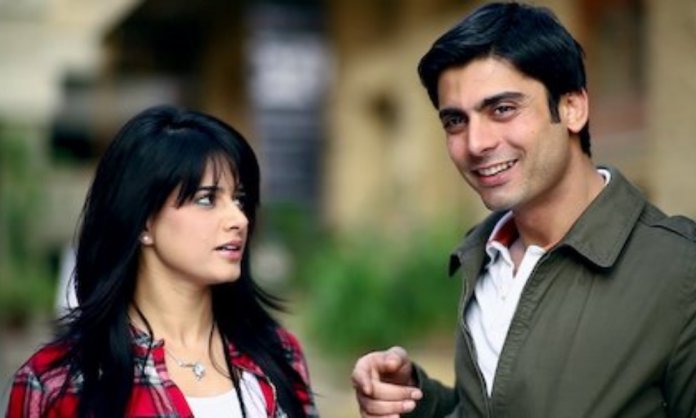Pakistani dramas have come a long way from just depicting typical stories. The production quality has significant upgrades, and so has the film industry side-by-side. Ever wonder how we are moving forward with full speed while also portraying our antagonists as ‘modern’ – particularly women?
A Twitter user tweeted,
hate typical paki dramas where the protagonist is portrayed as a woman wearing shalwar kameez while the antagonist is almost always this oVerTLy moDeRniStiC woman dressed in a sHoRt shiRt n tiGhT jeAnS,therefore making shalwar kamez the ultimate standard of one’s hoLiNesS & piETy
— softboi (@coolguysndrome) July 18, 2020
The tweet has been making rounds on Twitter because, in reality, this is the truth. This is precisely how women are portrayed in Pakistani dramas. A protagonist has to be dressed in a pair of jeans and a tight shirt as if the character’s wrongdoing is justified because she is ‘modern.’
Someone’s attire has nothing to do with who they are as a person, what their moral values are like, or what they might as well have achieved in life.
The reality is that these dramas do not portray our society the way it is!
can we also talk about how we rarely ever even get hijabi representation in pak dramas lmao like not one ☝️ they just throw the dupatta on the head.
— مريم 🎐 (@meowjojojo) July 19, 2020
Humsafar, a popular drama by Farhat Ishtiaq, directed by Sarmad Sultan Khoosat, also depicts the bad women as modern.
+ when they’ve served their narrative purpose i.e. bad woman (sara) vs good woman (khirad), the archetypal “bad woman” has nothing left to do but commit suicide (with none of the redemption that comes with self-immolation in, say, stories like padmavat) https://t.co/FxcyooSOUh
— comfortably dumb (@fifiishah) July 19, 2020
Film and tv play a massive role in setting stereotypes. It is high time we stop portraying women as evil while also being modern. Don’t get me wrong; a character can be evil and also ‘modern’ at the same time, but when there is a pattern, and it is repeating, people notice and, more importantly, ‘learn behavior.’
Exactly, what a load of bullcrap. Normalise shorts one day, salwar kameez when mood calls for it, dress the next day and so on. That’s normal, we wear what we feel like when we feel like. High time we overcome this need to analyse character based on outfits. https://t.co/TMwXBfvdYj
— Nida (@naamadaalikhna) July 19, 2020
i loved akbari asghari bc it taught u not to judge someone by their looks, the one sister who was “modern” turned out to be the more honest one whereas the other sister used this same concept to appear holy in front of her parents but was actually lying all the time https://t.co/RIKa8z95aN
— humaira (@Humairabear) July 19, 2020
We Need More Dramas to Portray Strong Characters of Women
Pakistani dramatist, playwright, and scriptwriter, Haseena Moin’s plays, were much admired as they portrayed women of strong character such as Marina Khan’s character Sanya in “Tanhaiyaan” or Dr. Zoya in “Dhoop Kinare.”
The characters in Moin’s plays portrayed women who were resilient, secure in the face of adversity, and independent. They had a strong sense of ethics and morality that earned the respect of those around them, including their male counterparts. They were role models for future generations.
We hope our industry starts giving the content as much importance as production and stops manifesting modern-day women as ‘Evil.’
Have something to add? Let us know in the comment section below.
For more news and updates, stay tuned to Brandsynario.











































